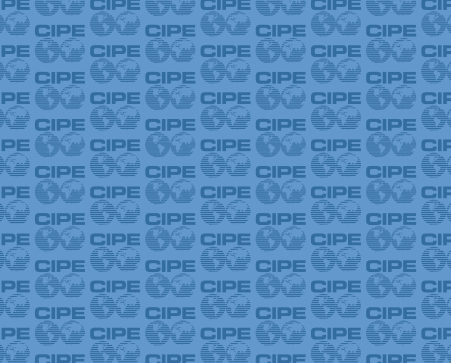
For years, growing private capital flows to developing countries, technological change, demographic pressures, and the spread of democracy have been reshaping the development landscape, as Steven Radelet recently noted. On June 11-13, the United States Agency for International Development (USAID) hosted the Frontiers in Development conference at Georgetown University to explore innovative ways of addressing the challenges and opportunities these changes have created.
While many perspectives and experiences were presented at the Frontiers in Development conference, several themes came across strongly throughout. We heard repeatedly how democracy undergirds the sustainability of reform. President Ellen Johnson Sirleaf of Liberia declared that “if we fail to build true democratic governance, we will fail to achieve development.” (See the article on “Democracy and Development in Sub-Saharan Africa” by Johnson Sirleaf and Carol Lancaster.) Likewise, President Atifete Jahjaga of Kosovo asserted that “democracy and development go hand in hand.” Taking the argument a step further, World Bank Managing Director Sri Mulyani Indrawati and others argued that the key to sustaining development gains is to strengthen the institutions that underpin effective democracies — democracies that deliver.
A second major theme of the conference was the need for host country ownership of development processes, meaning that host-country governments and stakeholders control the development agenda and have a say in how development projects are designed and carried out. Local ownership matters because local people know their country’s priorities, and because local capacity is achieved largely by learning through doing. Ownership, it was stressed, must occur in the context of accountability and transparency. Moreover, as USAID Deputy Administrator Donald Steinberg noted, ownership applies to civil society actors as well, not just governments.
The conference also emphasized women’s empowerment. The opening panel made quite an impression with three female heads of state — President Johnson Sirleaf, President Jajhaga, and President Joyce Banda of Malawi — as well as former leaders Mary Robinson of Ireland and Helen Clark of New Zealand. Although women’s concerns in areas like health, education, and security were highlighted, the focus was even more on how women play leadership roles in advancing development, especially in fragile states.
With respect to innovation, Rakesh Rajani of East African civil society movement Twaweza made one of the more insightful comments. He spoke of the fact that many problems are not amenable to top-down solutions, and that an appropriate response to uncertainty can be “open architecture solutions.” That is, people are seeking information, tools, and ideas, and if these are provided they will be able to work things out on their own. Since it is hard to predict where scalable, sustainable, and locally appropriate solutions will emerge, facilitating the flow of information and leveling the playing field may be the best policy. Some speakers alluded to creating an enabling environment for the private sector based on a level playing field that fosters entrepreneurial solutions.
All of these themes are linked and advanced by partnerships. Development actors of all stripes must listen to local needs, expand local capacity, reward improvements in governance, and share their expertise in addition to their money. There are many instruments for delivering assistance and sparking development. But all of them work best in the context of open processes, improving institutions, and balanced relationships between donors and their local partners.
Published Date: June 18, 2012